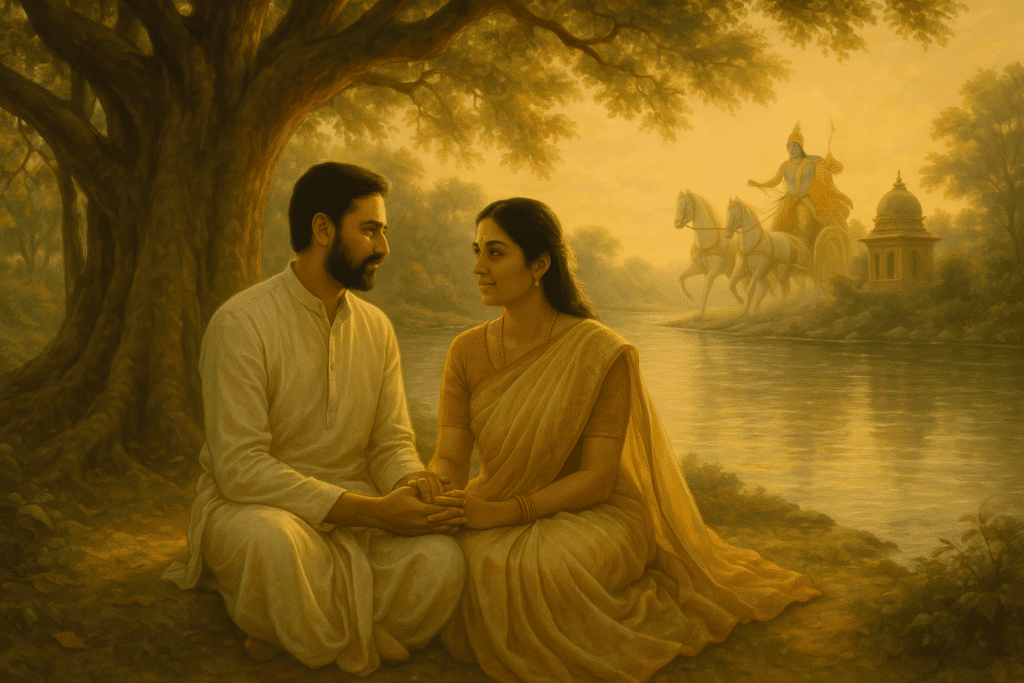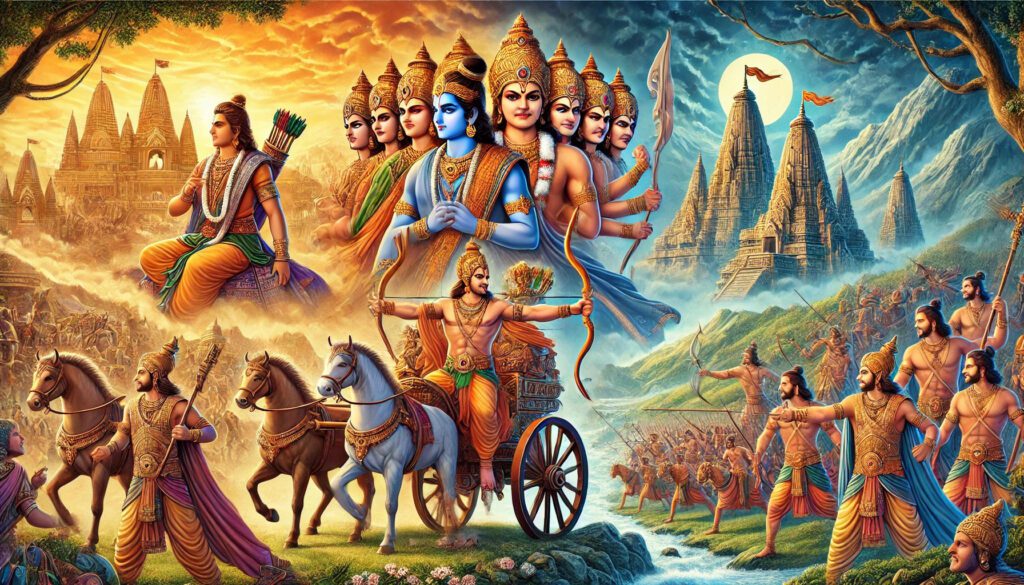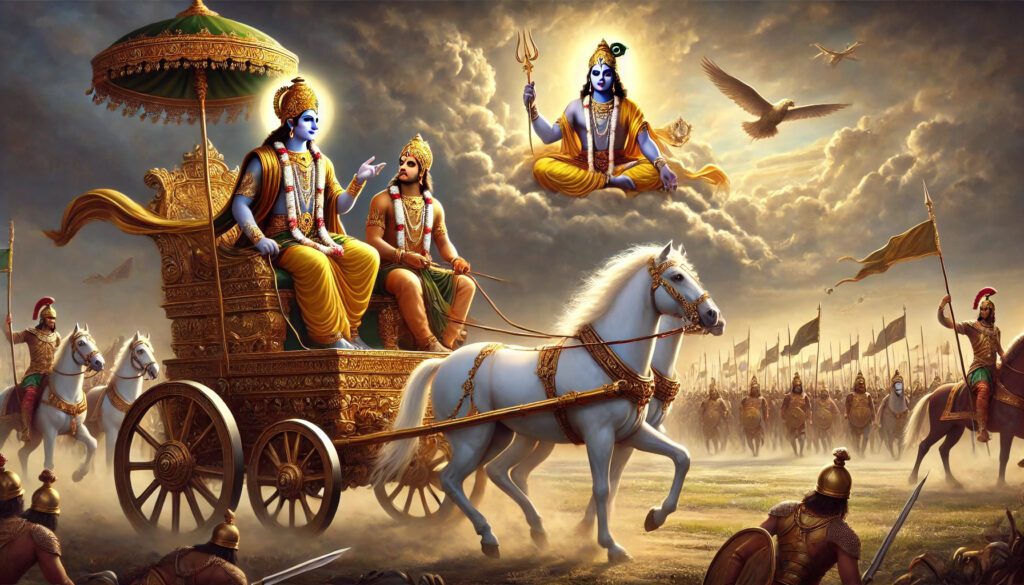Marriage and relationships form the cornerstone of human experience, weaving the threads of companionship, duty, love, and spiritual growth. While the Bhagavad Gita does not directly address modern marital dynamics, its timeless spiritual principles offer profound guidance for cultivating harmony, understanding, and purpose in relationships.
- Dharma (Duty) in Marriage
The Gita repeatedly emphasizes dharma, or righteous duty, which applies deeply to marriage. Arjuna’s dilemma on the battlefield symbolizes the inner conflicts we all face, including in relationships. Krishna advises him:
“Do your prescribed duty, for action is better than inaction.” (BG 3.8)
In a marital context, this means honoring your responsibilities—whether as a spouse, parent, or partner—not out of compulsion, but with consciousness and devotion. Fulfilling one’s role sincerely sustains balance and avoids resentment.
- Selflessness and Detachment
One of the Gita’s core teachings is nishkama karma—acting without attachment to the results. In relationships, expecting reciprocation or reward often leads to disappointment. Krishna teaches:
“You have a right to perform your prescribed duties, but you are not entitled to the fruits of your actions.” (BG 2.47)
Applying this, spouses are encouraged to love and serve selflessly, without conditions. This promotes emotional maturity and a deeper soul connection, free from ego and control.
- Managing Emotions Through Inner Balance
Krishna repeatedly stresses the importance of emotional regulation and inner calm:
“A person who is not disturbed by happiness and distress, and is steady in both, becomes eligible for liberation.” (BG 2.15)
In marriage, emotional ups and downs are inevitable. The Gita reminds us that steadiness of mind, not impulsiveness, builds strong bonds. Practicing mindfulness, prayer, and forgiveness can help transcend reactive patterns.
- Seeing the Divine in Each Other
The Gita teaches that the Divine dwells in all beings:
“The Lord resides in the hearts of all living beings, O Arjuna.” (BG 18.61)
Seeing your spouse as a divine soul on their own journey fosters compassion and spiritual intimacy. Conflicts are approached not from ego, but with empathy, recognizing the other’s inherent divinity.
- Surrender and Spiritual Unity
Ultimately, Krishna teaches surrender to the Divine as the highest path:
“Abandon all varieties of dharma and just surrender unto Me.” (BG 18.66)
For couples walking a spiritual path, surrendering the relationship to God brings strength and clarity. When both partners grow in bhakti (devotion), the relationship transforms into a sacred partnership, a union of souls supporting each other’s liberation.
Conclusion: A Sacred Journey Together
The Bhagavad Gita doesn’t define marriage in worldly terms, but in spiritual essence. It teaches that every relationship is a field (kurukshetra) where the soul evolves. By aligning our relationships with divine principles—duty, detachment, compassion, and devotion—we turn marriage from mere companionship into a sacred journey towards self-realization.
Let every bond be not just a tie of hearts, but a path to the Divine.



